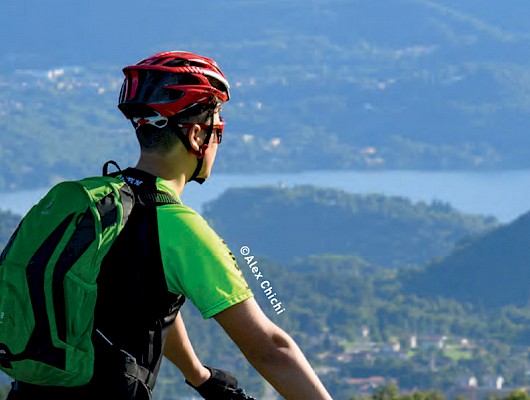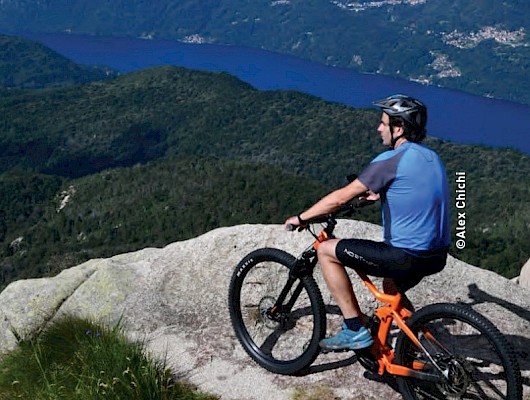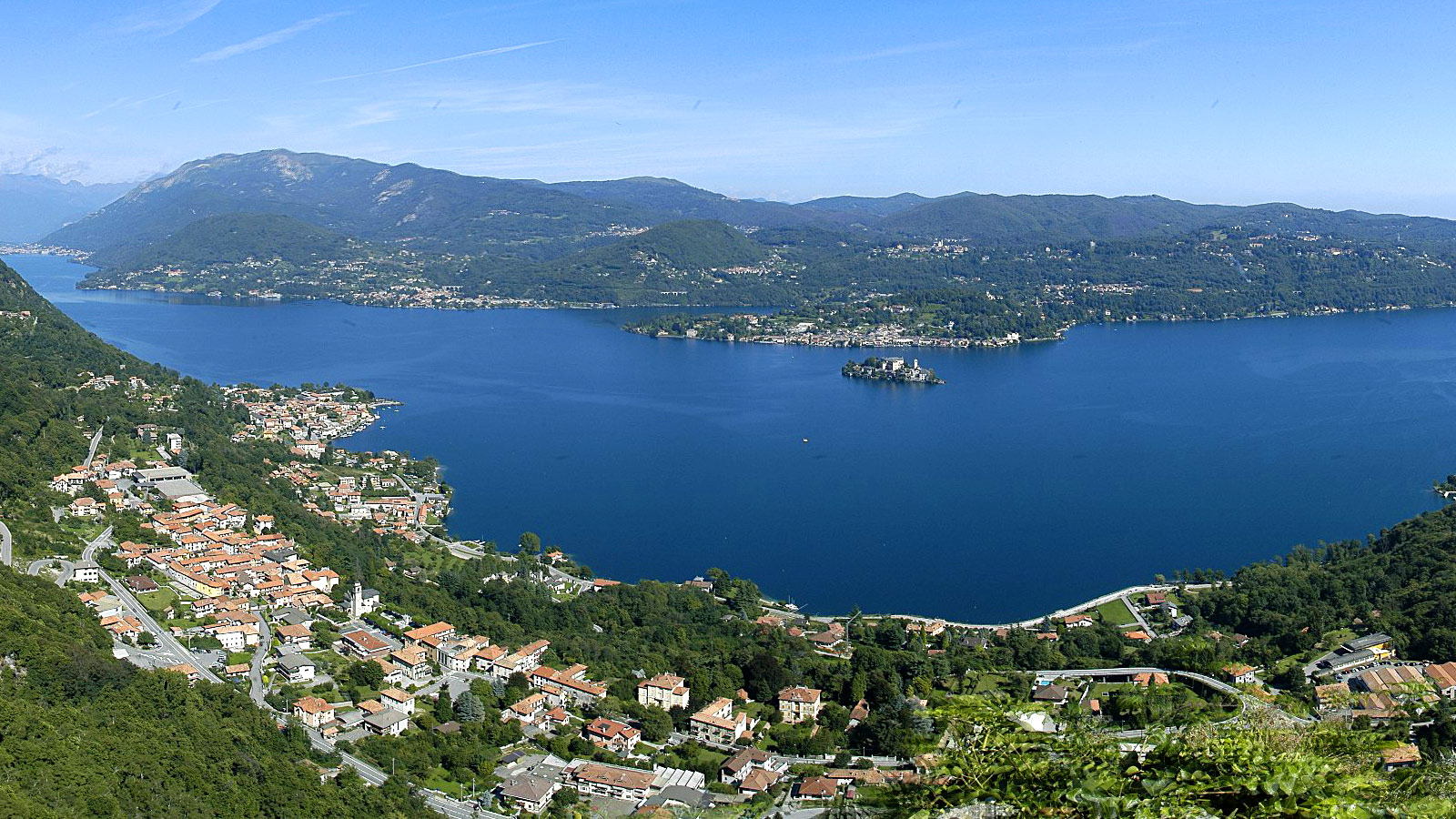
Lake Orta
Lake Orta (Italian: Lago d’Orta) is a lake in northern Italy, west of Lake Maggiore. It has been so named since the 16th century, but was previously called the Lago di San Giulio, after Saint Julius (4th century), the patron saint of the region.
The route begins Gozzano, which you can admire the monumental complex: the castle compound in the Basilica of St. Giuliano (XVIII sec.), Oratory of St. Gaetano and the Episcopal building. A visit is deserved Romanesque church of San Lorenzo XII sec.). Leaving the country, about 2 kms towards Orta San Giulio, it is possible to park at the Coast Gozzano, with parking, bar and beach.
Returning to the Regional Road 229 begins the descent to the lake where you can see the tower on a hill of Buccione, original longobarda. Between villas of the eighteenth century, surrounded by large parks we come to the peninsula which rises up the characteristic village of Orta San Giulio, now considered "the pearl of the lake." It is a tourist center of international importance.
Orta Leaving a visit is necessary to Legro the "land of painters" with works by contemporary artists. Back on the road 229 towards Pettenasco we can visit the church (XVIII sec.) dedicated to Saints Audenzio and Caterina and the Museum of Art of Wood Turning. We go through a course of natural oases,monuments and museums that help to discover the landscapes around Lake Orta.
Leaving Pettenasco, after passing the tip Crabbia we enter the town Omegna, the northern end of lake. To visit the parish church of Sant'Ambrogio structural Late-romanica; Piazza XXIV aprile surrounded gantry buildings which appear the mayor and the former home of Bazzetta Vemenia; is interesting Museum of Art and Industry.
Then the regional road continues Casale Corte Cerro with the opportunity to visit the religious center and Getzemani and for Gravellona Toce where we can see the Romanesque church of San Maurizio. To the west of Omegna opens the valley Strona. On Omegna is reached within a short time with the Sotto Quarna Etnografico Museum and Musical Instrument; Quarna Sopra with his "Belvedere" where you can enjoy a panoramic view of Lake Orta and surrounding mountains.

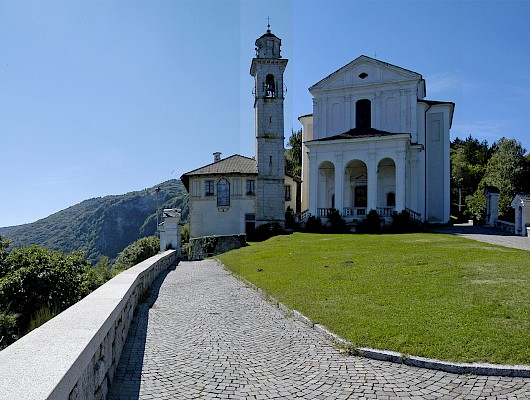
Returned near Omegna we take back the road which crosses wilder zones. The first village which we meet is Brolo where it is possible to admire the Villa Tarsis, (XVII-XVIII sec.).
Successively we meet Nonio with her parochial church of San Biagio in the style baroque; around we can reach the small lakes of Nonio or Oira to enjoy of show offered by the waterfall formed by the torrent Qualba. Cesara with the interesting Saint Clément's parochial church. In approximately 2 km except these villages we arrive in a fork, where the road begins to go up in the direction of Arola and then to the pass of Colma (942 m) who connects the zone of the Lake of Orta to that of Valsesia.
By returning southward, along a narrow valley, we arrive at Alzo and from there to Pella to visit saint Philibert's Romanic church and medieval donjon or rise towards the Commune of Madonna del Sasso consisted of Boleto, Artò, Centonara e Piana dei Monti. Visit the seventeenth century of the Sanctuary on a rock and to admire magnificent panorama on all the lake. In Boleto and Artò it seems that the time stops: we can cross paved streets, see fountains, washhouses and dials solar energy; In Centonara is preserved a grindstone which was used for the work of the hemp.
Our route touches the end with a brief visit to San Maurizio d'Opaglio where it is possible to visit the Museum of the Robinetto and its Technology; Pogno with the church parochial of San Vincenzo (XI sec) and see some "wall"; finally in the return towards Gozzano, with a small detour, we visit the oratory Pogno with the parish church of St. Vincent (XI sec.) And see some "wall". Finally the return to Gozzano, with little detour, we visit the chapel of the Madonna di Luzzara with frescoes of the XV and XVI century where we enjoy a splendid view of Lake Orta.
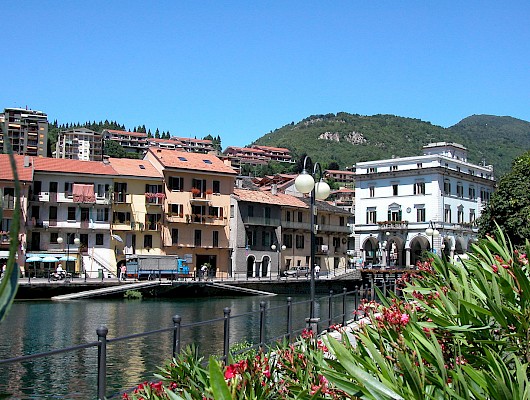
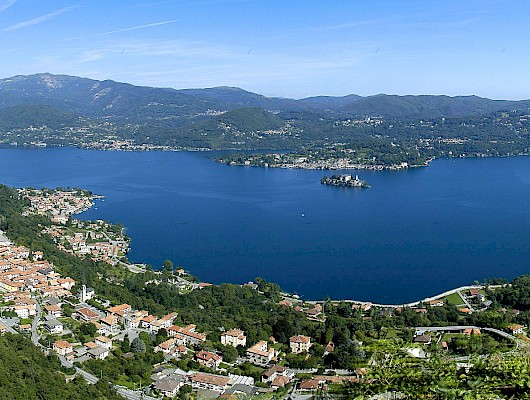
Lake Orta is a destination that has pursued a sustainable development, combining hospitality, sport and culture with a big love for the environment: the perfect destination for lovers of mountain bikes and pedal assisted bicycles.
From Mottarone to the Strona Valley, down to the shores of the lake, among fascinating woods and luxuriant meadows, you can climb splendid mountains, between ancient churches and poetic villages. Discover the many itineraries available thanks to the guide created by Unione Turistica Lago d’Orta.
